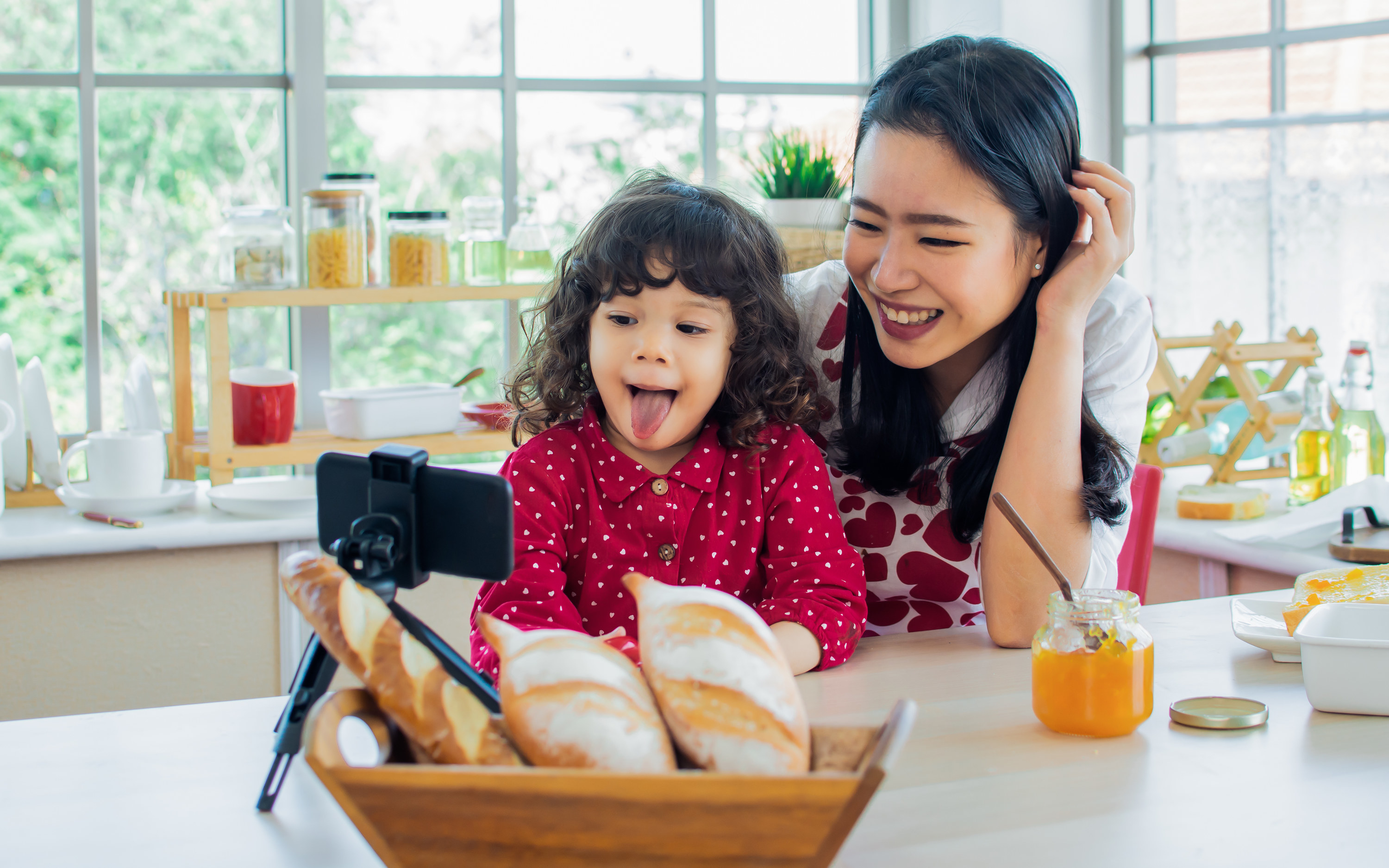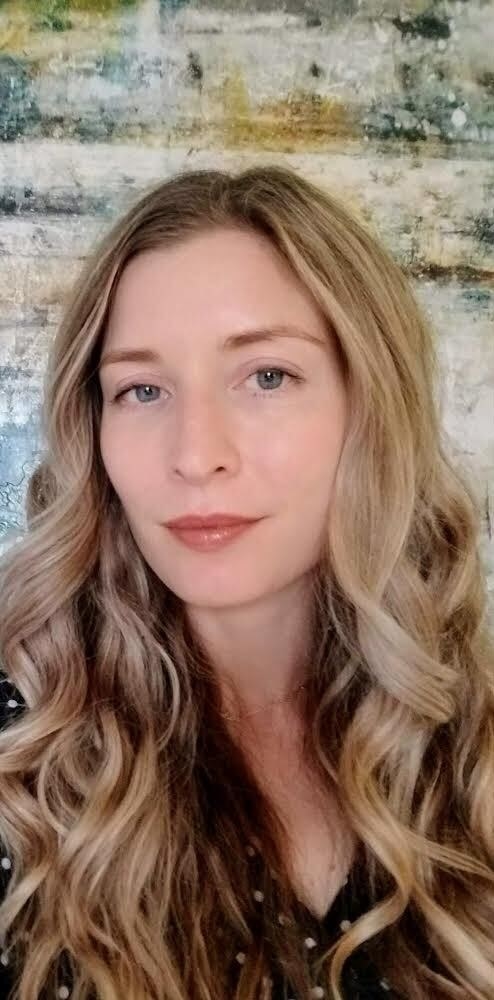
This is an excerpt from Please Like Me, BuzzFeed News’ newsletter about how influencers are battling for your attention. You can sign up here.
The world of family influencing has never been short of train wreck moments — but now there are other creators whose content is aimed specifically at calling them out.
Sarah Adams, better known as Mom.Uncharted, joined TikTok in the summer of 2021. She’s grown a following of over 100,000 for her criticisms of family vloggers (which has led, she claims, to being blocked by several major names) and dissection of some of the most troubling examples of content.
“The state of parental public oversharing online has reached worrisome new heights and the state of child exploitation on these social media apps is not OK,” Adams told BuzzFeed News.
In one of her most viral TikToks, which has been viewed more than 2.4 million times, Adams questions what kind of buyers would be interested in purchasing photosets of young girls priced as high as $125.
“I’m at the point where it’s like, when is it no longer exploiting and it’s literally pimping out your children?” she asks in the video.
Her TikToks flag the ways online predatory communities are accessing the wealth of content parents supply on the internet and call for a dramatic rollback, with the onus on parents.
Whether it’s coaching your children to cry for the camera or making them the subject of cruel pranks, the act of leveraging the welfare of children for clicks or leaving them overexposed and vulnerable has made clear that there is a need for an overhaul of how children exist on the internet, starting with the influencer space.
These conversations aren’t new either, as my colleague Stephanie McNeal asked back in 2020 while covering the story of Huxley Stauffer: “What control does a child have over their own image on social media?”
While some advocates are taking the fight directly to the tech platforms like TikTok, Adams directs her critique at the supply side.
“I just find maybe not enough people are really critically thinking about this, that we as a society have constructed this notion that online popularity is what matters most and internet fame and money is the top tier of society. And that somehow, our children's safety comes second or third in all that,” said Adams, who is a mother of two.
Often this debate around child exploitation online is immediately embraced by QAnon, a mass delusion that includes astonishing claims about child sex trafficking operations — and Adams distances herself completely from those conspiracies. Instead, she is particularly critical of the large social capital associated with family vlogging and influencing, which means sharing more about your life and children than the average parent as a requirement of your job.
This culture has made beloved figures of people like Maia Knight and her twin daughters, who have 8.4 million followers on TikTok, all invested in how a single mom of twin girls navigates parenthood.
“There is a difference in influencers who are using kids as content versus moms who occasionally feature their kids,” said Adams, who has previously posted regarding Knight and received a backlash from her core fans.
“If I'm scrolling and your kids are in 95% of your content, that's kid-does-content to me. If I'm scrolling and like, a few weeks ago, you had a video with your kid, that's different,” she said.

“Would some of those creators even be there if it wasn't for the kids? The answer's no,” Adams added. “The kids are the platform, they are the page, and it's the parasocial relationships that people are developing with their children that people are really interested in.”
From toddlers to teens, the risks associated with becoming a brand and living center stage on major tech platforms have sometimes frightening real-world implications.
Florida-based TikTok star Ava Majury, for example, started on the platform at 13. Within a year of launching her account, she had amassed a million followers, nearly 75% of which were male, according to reporting in the New York Times.
With the permission of her parents, Ava, then 14, sold selfies that she had posted on Snapchat to a an 18-year-old man, despite the fact that he had bought photos of her, along with personal information, from her friends. He would later show up on her doorstep with a shotgun.
The ordeal ended with the alleged stalker being shot dead by Ava’s father, a retired police lieutenant.
But that hasn’t deterred Ava, who is now 15, from continuing with her social media career, which I imagine is incredibly lucrative.
In the UK, a recent report produced by the government’s Digital, Culture, Media and Sport Committee emphasized the need for new legislation to cover child influencers and recommended the need for a way to regulate their participation in the influencer community, and the impact this may have on them, including on their consent and privacy.
Similarly, Leah Plunkett, author of the book Sharenthood: Why We Should Think Before We Talk About Our Kids Online and a faculty member at Harvard Law School, believes the US should update its federal and state labor laws to recognize child influencers as performers and give them legal protections in terms of their earnings and their working conditions.
“When parents have made “sharenting” into a business enterprise, rather than a personal habit, their child stars should have legal protection, just as child stars do on movie sets and Broadway stages,” she told BuzzFeed News.
Posting on social media, Plunkett said, can teach kids that they have to perform a version of themselves to keep the family business going.
“When we document everything our kids do and try to monetize what we've created, we're putting kids in the spotlight, in front of countless strangers, now and in the future,” Plunkett said. “We're setting them up to act at being themselves, rather than giving them the privacy to play, to figure out who they actually are.”
As lifestyle influencer Amber Fillerup Clark so aptly explained to followers who questioned why she had stopped posting pictures of her children, “privacy is power.”
Adams encourages parents to stop posting images of their children entirely.

“All the choices I got to make for myself, everything I put out there — I chose that. I made those decisions,” she said. “And I would like my kids to have that same sense of autonomy and not see a whole footprint following them around that they didn't really have any say in.”
It almost feels inevitable that in the years to come, legal battles will be waged between young adults and their caregivers over their early years on the internet, including it’s economic and emotional ramifications, and there will be a large digital arsenal of evidence to back it up.
Already, as more Gen-Z’ers come of age and begin to speak for themselves, these conversations are starting to take center stage — from small wins like getting the family YouTube channel that you never consented to demonetized to actual political mobilization.
Seventeen-year-old Chris McCarty, a high school senior in Seattle, was spurred to action by the story of Huxley Stauffer and is leading the Quit Clicking Kids campaign to stop the monetization of minors through social media. His proposed bill is backed by Rep. Emily Wicks, a Democrat from Everett.
For now, advocates like Adams are optimistic that their message is being received.
“I’ve had many moms and parents, some with large accounts in the millions, come to me and say, ‘Hey, your content made me do different things. I'm changing the way I'm sharing or I'm not going to feature my kids anymore,’” she said.
“There is a movement out there of parents kind of waking up to this and thinking of it in a different light and making changes.”
When I think about the concept of a digital footprint, I consider it the proof of my existence on the internet. I’m also awash with the relief that for the most part, I began on this journey when I was older and able to more clearly discern between what was fair game online and what should be reserved for private or at least restricted to my “Close Friends” list on Instagram.
